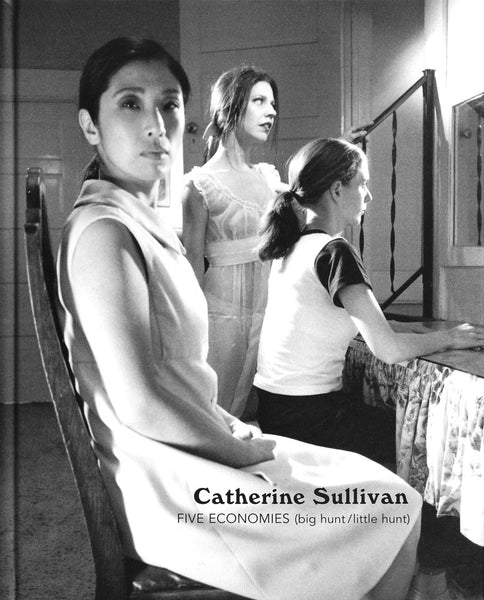- The Renaissance Society Store


Los Angeles-based artist Catherine Sullivan creates radically hybrid works that combine performance, installation art, dance, traditional theatre and Hollywood cinema. Five Economies (big hunt), a five screen video installation, mixed and matched scenes and acting styles taken from The Miracle Worker, Marat/Sade, Persona, Tim and Whatever Happened To Baby Jane, as well as real life instances of virtuoso acting such as the story of Birdie Jo Hoaks, a 25 year old female who passed as a 12 year old boy in order to gain state social services. In black and white, and completely soundless, big hunt forces its audience to read drama and plot on the basis of the semiotics of gesture and mise-en-scene.
This catalogue is illustrated by numerous video stills from Five Economies, and photographs of Gold Standard, the high-energy performance directed by Sullivan that took place at The Renaissance Society exhibition opening, which featured 6 pairs of actors all simultaneously acting the learning-to-eat-with-a-spoon scene between Helen and Annie from The Miracle Worker. Hamza Walker's essay discusses Five Economies' relationship to Modernist formalism and essentialism regarding media; Russell Ferguson and Sullivan talk about her working methods and the theories of acting and theatre that are the foundation of her practice.
Published in conjunction with UCLA Hammer Museum
2002, 64 pp., 37 color, 20 b/w illus., hardback
Related exhibition: Catherine Sullivan, Five Economies (Big Hunt/Little Hunt) (2002)